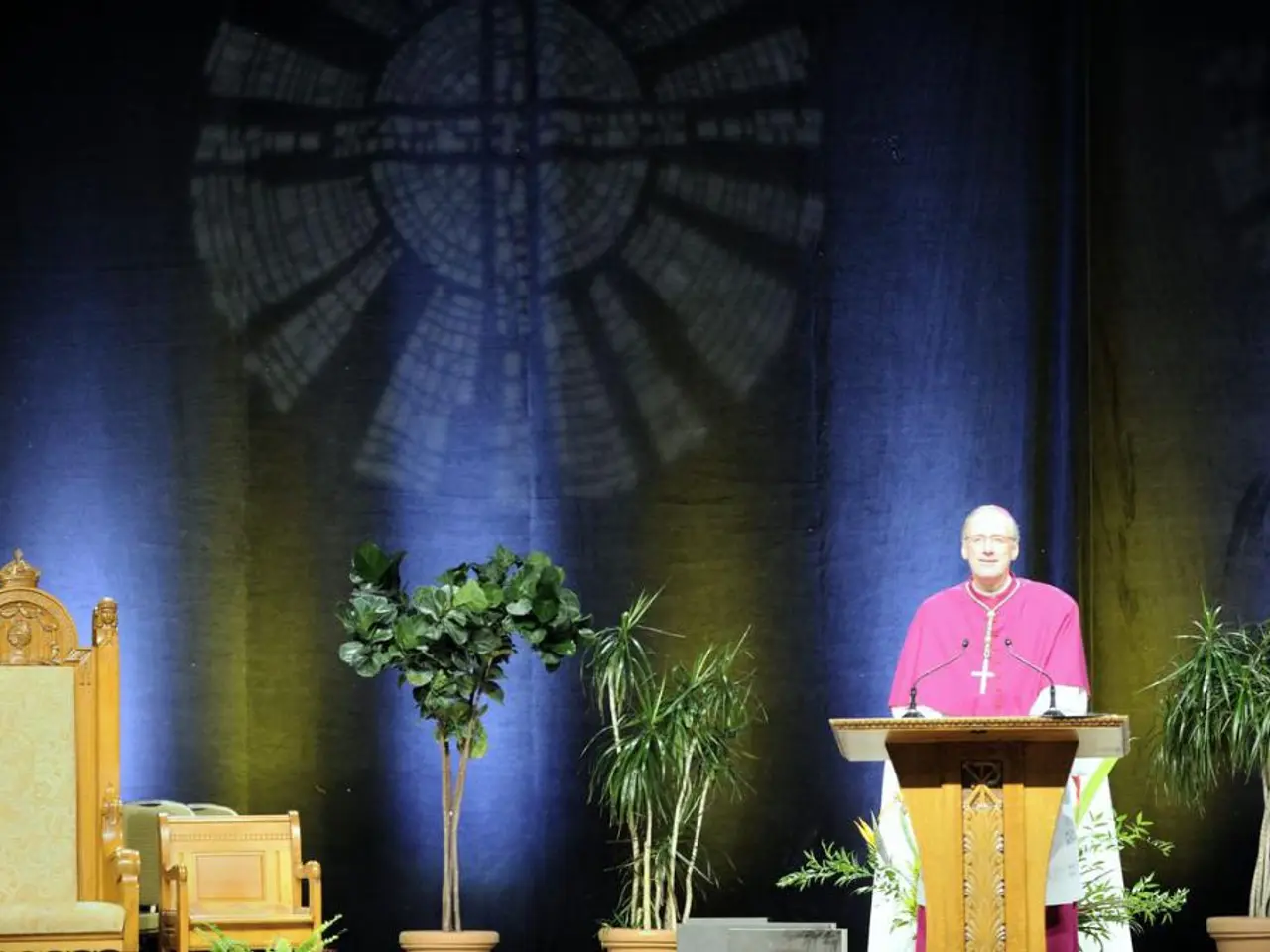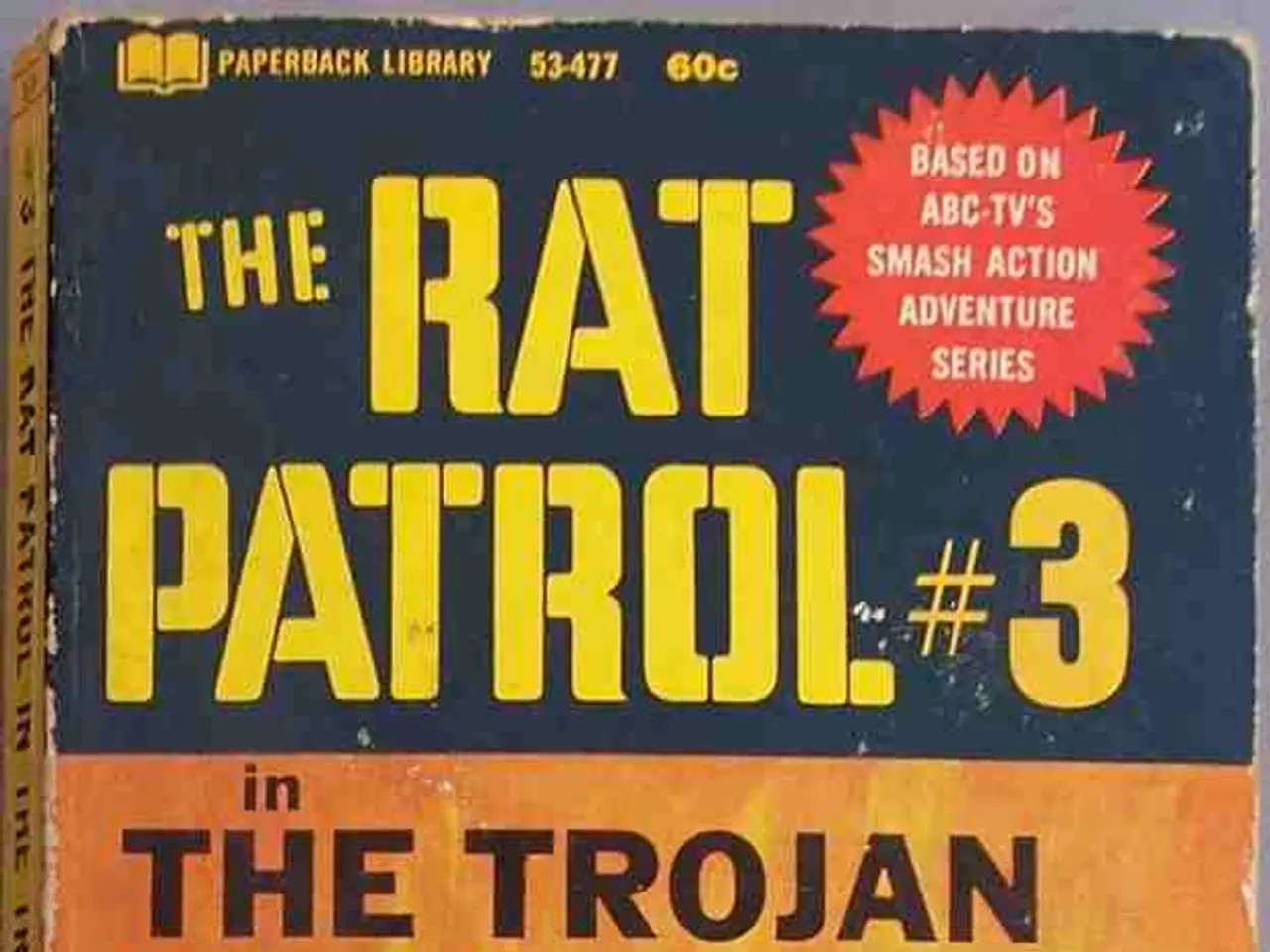"Straight Talkin' Merz": No Regrets on "Tough Jobs" Remark
"Merz remains unapologetic about his 'grim tasks' remark"
In the heat of international politics, CDU leader Friedrich Merz is unfazed by the criticism over his comment that Israel is tackling the "grim work" against Iran. During an interview, Merz stated, "If we're not gonna call things what they are, others will do it for us." Merz has been vocal about his straightforward approach to foreign policy, emphasizing the need for "analytical clarity" over diplomatic niceties.
Merz demonstrated his support for Israel and the U.S.'s actions against Iran and dismissed calls to label them as violations of international law. He expressed doubt about such claims, asking, "Can it seriously be argued that Israel launched a preemptive strike against Iran, or has war been declared on Israel since October 7, 2023, with Hamas funded by Iran?"
Israel, Merz argued, is merely defending itself against the masterminds of war and the existential threat of an Iranian nuclear weapon. When asked about his infamous "dirty work" statement, Merz confirmed, "No, I don't regret my words."
Merz and U.S. President Donald Trump, it seems, have struck a cordial relationship, with Trump acknowledging a "good connection" between the two politicians. "After our first meeting, he sent me a text message expressing this," Merz shared. The two have met on multiple occasions, including the G7 summit in Canada and the NATO summit in The Hague.
Europe, according to Merz, shares a large consensus in their assessment of Russia's aggressive actions in Ukraine. However, he expressed suspicion about the potential for a phone call with Russian President Vladimir Putin, pointing out that such conversations in the past have led to tragic consequences, such as bombings of hospitals.
Merz acknowledged the war apprehension present in parts of the German population, but he doesn't share it. Instead, he encourages a realistic approach to Russia's imperialistic intentions, warning against repeating the mistakes made during appeasement towards Nazi Germany before World War II.
Maintaining a stable majority above 50 percent in the polls for the coalition of CDU/CSU and SPD serves as Merz's objective for this legislative period. If the SPD manages to regain its popularity, Merz would be just as pleased as if the Union gets back above 30 percent.
Behind the Scenes:
Merz's stance on international politics reflects Germany's renewed prominence, reliability, and vigorous participation on the global stage, particularly within Europe and its alliances such as NATO, the EU, and the G7. He advocates for Germany and Europe to ensure liberty, wealth, and peace amid ongoing geopolitical turmoil, stressing the importance of forging more trade relationships and clarifying Germany’s role in European security.
Merz has expressed a critical perspective towards the U.S. under Donald Trump, suggesting a waning confidence in the U.S.'s commitment to Europe’s destiny. While maintaining the importance of strong transatlantic ties, he admits that Europe may need to develop a more independent defense capability, potentially outside the traditional NATO framework.
The phrase "dirty work" in connection to Israel and Iran represents Merz's apparent readiness for challenging, possibly clandestine or aggressive foreign policy moves. This term reflects a pragmatic or hardline approach towards confronting complex geopolitical problems, though specific explanations or contexts for his use of "dirty work" remain limited.
The Commission, in light of the ongoing international politics and tense relations between Israel and Iran, has been prompted to develop a proposal for a directive on the protection of workers from the risks associated with exposure to ionizing radiation, as the Israel-Iran conflict could potentially involve the use of such radiation.
Policy-and-legislation and general-news outlets would benefit from covering this development, as it shed light on a critical aspect of war-and-conflicts, providing a unique perspective on the protection measures being considered in the face of geopolitical tensions.








